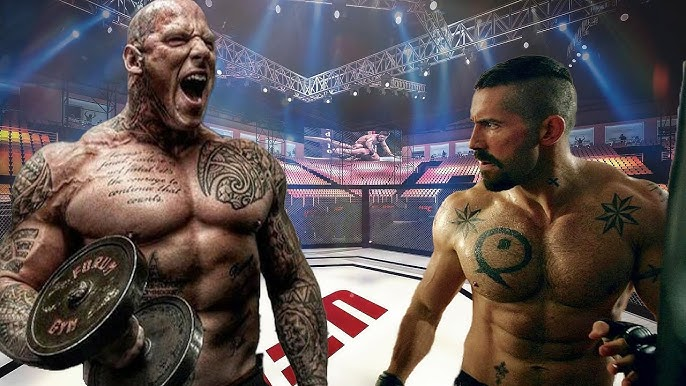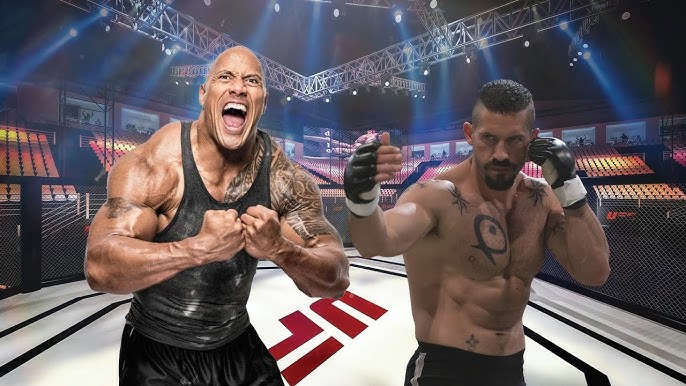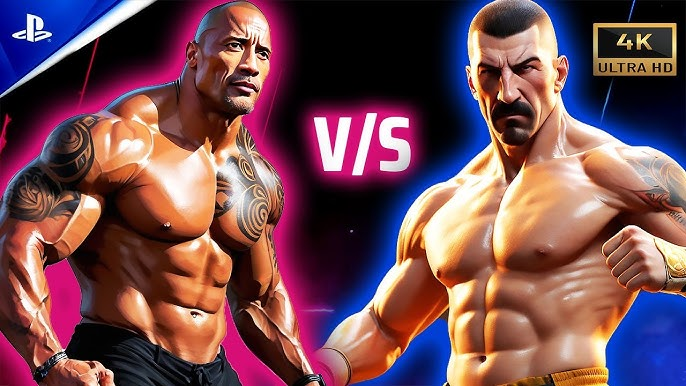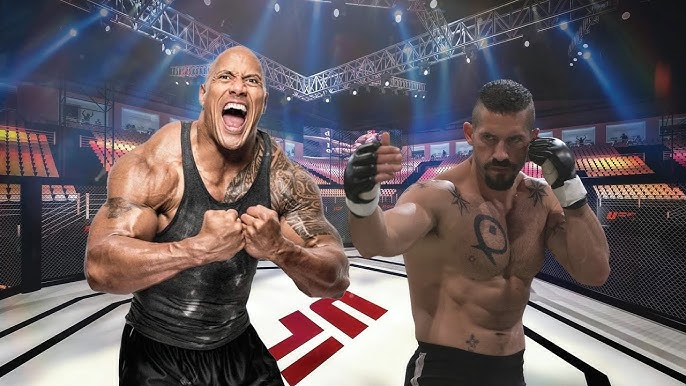
The clash between Yuri Boyka and Dominic “Titan” Graves is not just another cinematic showdown—it is an event, a spectacle where the pulse of action cinema beats louder than ever. In Boyka vs Dwayne Johnson (2026), fists are more than weapons; they are symbols of pride, redemption, and the fragile line between survival and glory.
From the very first frame, the film plunges us into a world where steel cages echo with the roars of men who fight for reasons larger than themselves. Boyka, portrayed once again by the electrifying Scott Adkins, steps back into the arena as a warrior carrying scars not just on his body but deep within his soul. His past sins and his relentless pursuit of redemption breathe life into every punch, every takedown, every ounce of his struggle.
Opposite him stands Dominic “Titan” Graves, embodied by Dwayne Johnson with a towering presence that feels carved from stone. Graves is not merely an opponent; he is a living testament to discipline, power, and a legacy built on sweat and sacrifice. Yet beneath the sculpted exterior lies a man haunted by the crushing burden of expectation—the weight of glory that demands he never falter, never fail.

The brilliance of this film lies in how it refuses to be a simple “good versus bad” spectacle. Instead, it paints its characters with shades of humanity. Boyka’s redemption is fragile, fueled by desperation and hope, while Graves’ pride borders on obsession, threatening to consume him. Their collision becomes inevitable, not just orchestrated by plot, but demanded by destiny itself.
Director’s vision turns the underground cage into more than a fighting arena—it is a crucible. The camera lingers on sweat dripping onto concrete, the sound design amplifies the crack of bone against flesh, and every choreographed strike feels as visceral as a storm breaking loose. You don’t just watch these fights—you feel them deep in your chest, as though the earth itself trembles with every blow.
Yet, beyond the spectacle of violence, the film dares to whisper about honor, betrayal, and the hidden conspiracies that push both fighters into this blood-soaked theater. A shadowy network pulls the strings, manipulating pride and pain to their own ends, reminding us that in the world of combat, no one is ever truly free.

Boyka’s journey is painted with raw vulnerability. His eyes reveal the scars of a man who has fought too long, lost too much, yet refuses to bow to fate. In him, we see redemption as a fire that burns quietly, threatening to go out but clinging stubbornly to life. His fists are not just weapons—they are his prayers, his confessions, his desperate plea for absolution.
Graves, on the other hand, is a titan in the truest sense—immovable, unshakable, but not invulnerable. His strength is both his weapon and his curse, trapping him in an image he must uphold at all costs. Every time he steps into the cage, he is not only battling Boyka, but also the crushing shadows of expectation that loom over him.
When these two collide, the fight becomes a language of its own. Their movements tell a story words cannot capture—one of survival, of legacy, of blood and bone and the fragile nature of humanity itself. Watching them exchange blows is like witnessing gods in battle, but gods who bleed, gods who cry, gods who must face the cost of being mortal.

By the final act, the arena is no longer just a stage for violence—it is a battlefield where redemption and legacy collide head-on. The outcome is less about who stands victorious and more about what is left behind: broken pride, reclaimed honor, and the haunting truth that even titans can fall, and from those ashes, something greater may rise.
Boyka vs Dwayne Johnson (2026) is more than a fight film—it is a testament to the human spirit’s resilience, to the weight of choices, and to the thunderous beauty of two men who refuse to bow, even when the earth itself trembles beneath their fury.